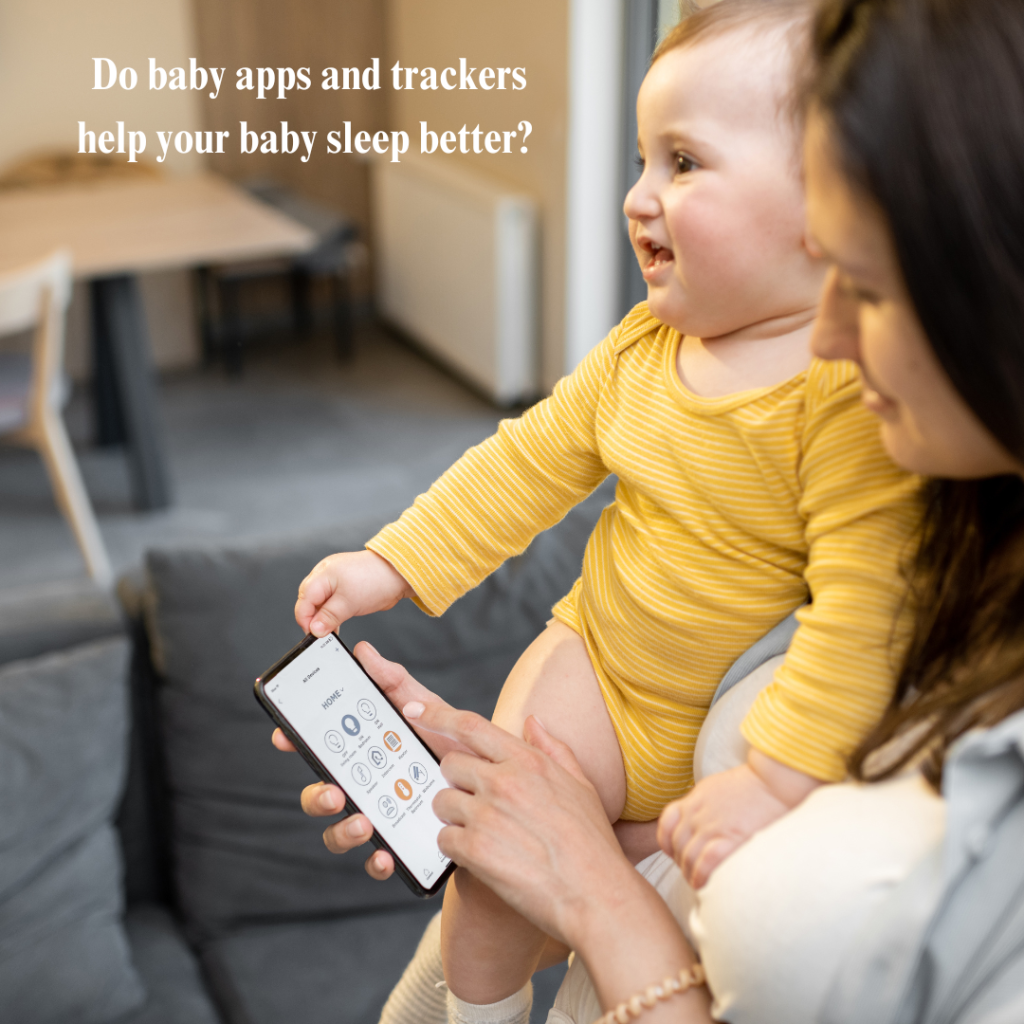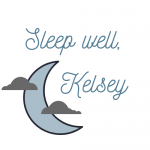
Do baby sleep apps and trackers really help your baby sleep better?
As a parent, finding ways to support your baby’s sleep can feel overwhelming, especially with the abundance of advice and tools available. In recent years, sleep apps and trackers have become essential tools for many parents to monitor and improve their baby’s sleep. But which apps and trackers are truly effective, and how do they align with the latest research? Let’s dive into some of the most helpful baby sleep apps and trackers, guided by the insights from recent studies on infant sleep technology. I will also discuss when an app can be helpful vs when to get 1:1 sleep support with a pediatric sleep consultant.
The Role of Baby Sleep Apps in Sleep Improvement
Apps and devices designed to monitor and improve sleep are now a cornerstone for many parents. Sleep apps generally fall into two categories: those that track sleep patterns and those that offer soothing aids or guidance on how to improve sleep routines. According to a 2022 review in the Journal of Pediatric Health Care, some baby sleep trackers can be helpful in identifying sleep patterns and guiding parents to create better sleep habits. However, it’s crucial to note that the effectiveness of sleep apps is often enhanced when combined with sound sleep hygiene practices such as consistent bedtime routines, sleep environment optimization, and monitoring wake windows.
Best Baby Sleep Tracking Apps
You guys all know that I’m an evidence based nurse practitioner and pediatric sleep consultant, so when it comes to looking for the best apps I’m looking for which ones are using evidence to back up their sleep recommendations (spoiler alert in this study only 2 out of 83 apps included met this criteria). Here are some baby sleep tracking apps that stand out for their ease of use, data collection, and ability to assist parents in better understanding their baby’s sleep through evidence:
1. Huckleberry
Huckleberry is one of the top apps praised by parents for combining sleep tracking with generated sleep schedules. It uses data from your baby’s sleep patterns and applies an algorithm to recommend ideal nap times and bedtimes. According to the study, tracking sleep and using predictive tools like Huckleberry can help parents stay ahead of sleep disruptions. There is a cost associated with some features of this app to get sleep schedules or you can look at my schedule blog for free too!
2. JOHNSON’S BEDTIME Baby Sleep app
JOHNSON’S BEDTIME Baby Sleep app was the only app with support from a real-world effectiveness trial. It uses included both bedtime routines and a consistent sleep scheduling to improve your baby’s sleep. For babies with sleep problems they saw earlier bedtimes, longer continuous stretches of sleep, as well as decreased number and duration of night wakings, after using this app (Leichman et al., 2020).
Wearable Sleep Trackers: Do They Really Help?
Wearable devices such as the Owlet Smart Sock and Nanit Pro Camera track more than just sleep; they monitor your baby’s vitals and movement, offering detailed data. The Owlet and other “home cardiorespiratory monitors should not be used to reduce the risk of SIDS”, according to the American Academy of Pediatrics (AAP) “Safe Sleep Recommendations” updated in 2022. This recommendation was put in place because data supporting their use to prevent sudden and unexpected death is lacking.
When it comes to the Nanit, and other sleep monitors, the 2022 study I reviewed points out that while these trackers provide valuable data, they should be used in conjunction with parental intuition and established routines. No app or tracker can replace the importance of consistency in sleep schedules and creating a sleep-friendly environment.

Limitations of Baby Sleep Trackers
While sleep apps and trackers offer significant advantages, the research stresses that they should be used with a degree of caution. One limitation highlighted is that they may sometimes lead parents to over-monitor, which can increase anxiety. Additionally, not all trackers are accurate in detecting sleep stages as a true sleep study would do, and some may miss subtle cues that are best understood through observation.
I encourage parents to use these tools as a supplement rather than the sole method for managing baby sleep. Apps and trackers can offer useful patterns and insights, but observing your baby’s unique cues and needs is essential.
Apps like Huckleberry and Johnson’s Baby Sleep App can help track sleep patterns and provide data-driven insights, while a 1:1 support from me will help you chose a method your family is comfortable implementing and be able to hold you accountable through the process to meet your sleep goals in a short amount of time.
When to get more help from a pediatric sleep consultant
While baby sleep apps and trackers can certainly provide insights and support, they work best when integrated with good sleep hygiene, routines, and a sleep plan with a chosen sleep training method when needed. Apps like Huckleberry and Johnson’s Baby Sleep App can help track sleep patterns and provide data-driven insights, while a 1:1 support from me will help you chose a method your family is comfortable implementing and be able to hold you accountable through the process to meet your sleep goals in a short amount of time. Always remember that these tools are just part of the equation. Trust your instincts as a parent, and don’t hesitate to reach out for professional support with Nested Sleep if you need guidance tailored to your baby’s specific sleep needs.
With the right combination of technology, routine, and knowledge from Nested Sleep, you can create a sleep-friendly environment that helps your baby—and the rest of your family—rest peacefully. If you need more help getting rest for your family book a free 15 minute discovery call with me here!

References:
Leichman ES, Gould RA, Williamson AA, Walters RM, Mindell JA. Effectiveness of an mHealth Intervention for Infant Sleep Disturbances. Behavior Therapy. 2020 Jul;51(4):548-558. DOI: 10.1016/j.beth.2019.12.011. PMID: 32586429; PMCID: PMC7428151.
Simon SL, Kaar JL, Talker I, Reich J. Evidence-Based Behavioral Strategies in Smartphone Apps for Children’s Sleep: Content Analysis. JMIR Pediatr Parent. 2022 Mar 3;5(1):e32129. doi: 10.2196/32129. PMID: 35238787; PMCID: PMC8931643.


